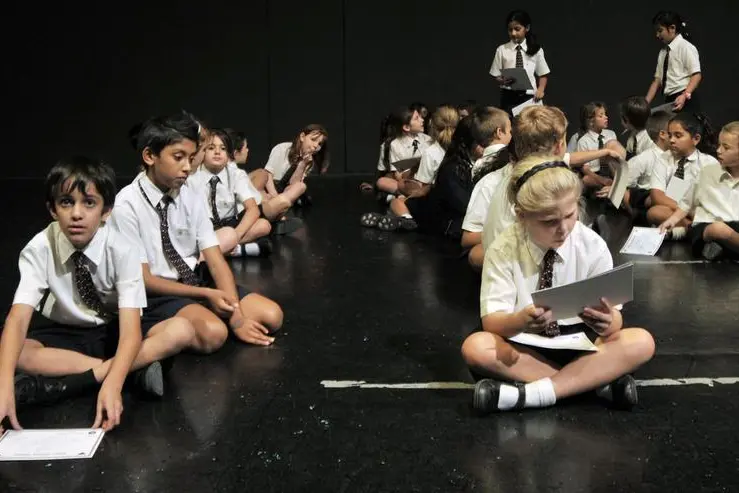PHOTO
Saturday, Oct 22, 2016
Dubai: Have you read one book every week this year? If so, you’re still far behind the 18 school-age finalists of the Arab Reading Challenge.
Since September last year, these children have each read and summarised in detail at least 50 books — and some have read far more.
Whittled down from 3.65 million children from 30,000 schools in 15 countries across the Arab world, just one of the 18 finalists, who are gathering in a Dubai school on Saturday and Sunday, will take home the final prize, which totals Dh550,000.
The competition, announced by His Highness Shaikh Mohammad Bin Rashid Al Maktoum, Vice-President and Prime Minister of the UAE and Ruler of Dubai, aims to fix record-low levels of reading and literacy among Arab youth.
The statistics paint a dark picture: the average Arab child reads books for just six minutes a year, compared to 12,000 minutes spent reading by children in the West, the Saudi-backed Arab Thought Foundation reported in 2012.
A further one in three struggles to read or write at all, according to Arab League estimates.
“The goal is to make reading a habit among the Arab countries,” said Yousuf Manasra, one of the Arab Reading Challenge’s five judges. “Within five years, we can achieve that goal.”
Under the competition’s guidelines, each of the 18 finalists faces a series of tough questions by the judging panel. Each of the 50 books read by participants must be in Arabic. If Arabic is not their first language, this number is reduced to 25.
Books on religion and science, as well as fictional novels, seemed to be popular with finalists.
Organisers say that the competition had proved far more popular than expected.
“We are talking about more than 100 million books that our students have read this year,” said Ayman Jarrah, a member of the organising committee. “Our expectation was 50 million.”
Tensions run high
For each finalist, tensions run high as they wait for their 20-minute slot to prove their knowledge in front of the judging panel.
“I really want to win and I will try my hardest,” said Judy Abdullah, a Lebanese student who has read 70 books this year. “But getting here is a big win.”
The 18-year-old’s favourite book is Picasso and Starbucks, a novel by Emirati author Yasser Hareb.
For Idoumu, an 18-year-old student from Mauritania, books on Arab culture and Sufiism are on top of his list.
Will he win the competition? “I have trust in God,” he said. “I’ve read ever since I was a kid.”
Fresh from the judging panel, 11-year-old Ahed, from Sudan, smiles with relief.
“It was very exciting, very easy, and I enjoyed every bit of it,” she said. Ahed plans to spend some of the prize money on charity — a free library is her top priority.
But, showing an ageing Samsung smartphone, she reveals another wish.
“If I win, I want to buy an iPhone 7,” she added.
On Monday, at the Dubai Opera House, the three finalists who emerge from Saturday and Sunday’s trial, will take part in the final stage to decide on the winner.
There, in a televised ceremony, schools and sponsors deemed to boosted literacy the most receive prizes from a pot totalling Dh11 million.
The competition takes place during the UAE’s Year of Reading, a national programme aimed to boost the love of literature.
In an ideal world, each Arab child should read at least 20 books — not including school text-books — a year, according to Tayyeb Abu Sin, another of the competition’s judges.
Abu Sin also serves as the author of the Arabic IGCSE syllabus for the London-based Edexcel exam board.
“As you know, they have other duties to do,” he adds. “[They have] got exams. I don’t want to put a very strong burden on them.”
By Paul Crompton Staff Reporter
Gulf News 2016. All rights reserved.





















